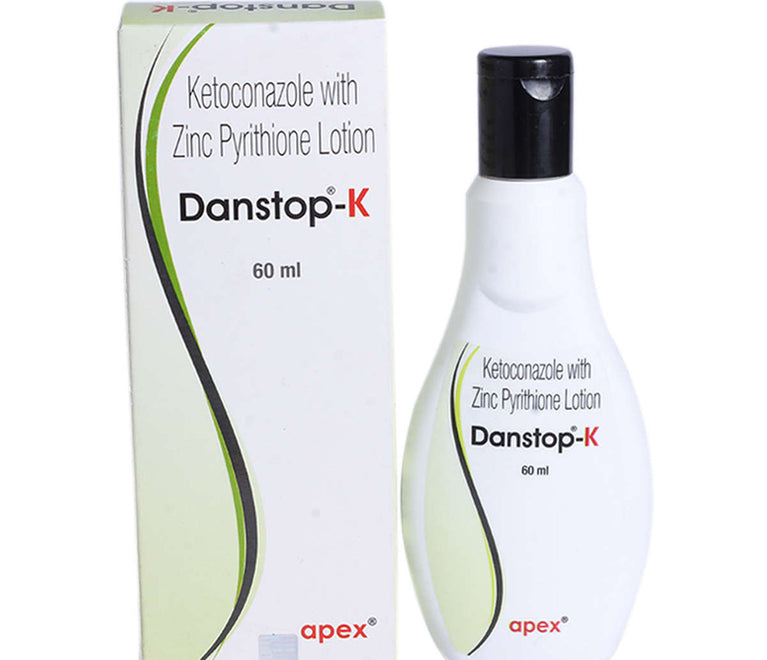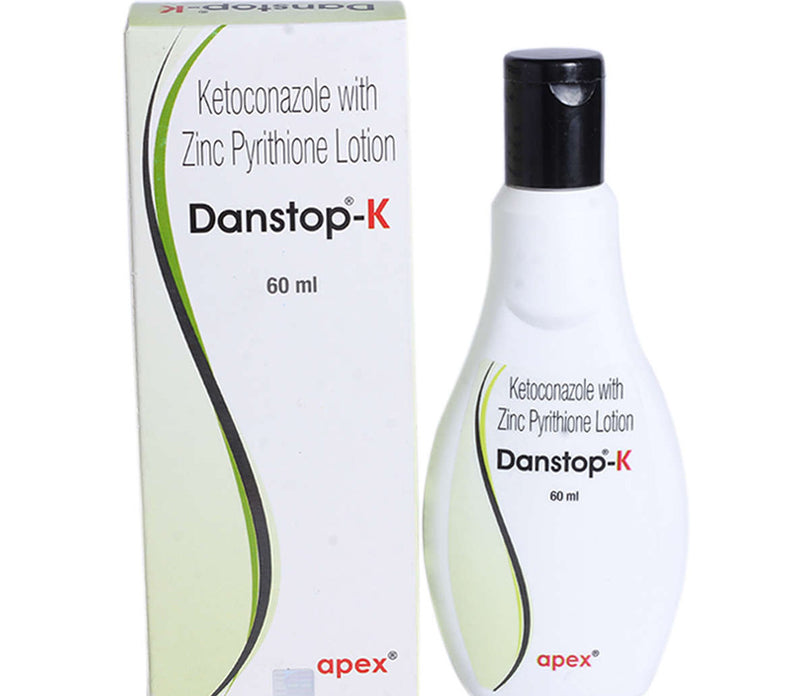Use DERMA120 to get ₹120 off on Order ₹2999+

Product Description:
Key Ingredients:
Composition:
Key Uses/Benefits:
How to Use:
Safety/Storage Information:
Country Of Origin:
India
Manufacturer/Marketer Details:
Apex Laboratories Pvt Ltd
III Floor SIDCO Garment Complex, Guindy, Chennai 600 032, India
India
Frequently Asked Questions (FAQs):
Danstop K Lotion is a combination of two antifungal drugs, Ketoconazole and Pyrithione zinc, used primarily to treat fungal infections of the skin, such as seborrheic dermatitis.
Danstop K Lotion works by disrupting the fungal cell membranes, which are crucial for the survival of fungi. This action creates holes in the membranes, leading to the death of the fungi and clearing the infection.
Danstop K Lotion is effective in treating fungal infections of the skin, particularly seborrheic dermatitis characterized by dry, flaky skin on the face, scalp, chest, upper back, or ears.
Danstop K Lotion provides relief from symptoms such as cracking, burning, scaling, and itching of the skin caused by fungal infections.
Danstop K Lotion is generally safe for use when used as directed. However, consult with a doctor before use if you have any allergies, medical conditions, or are pregnant or breastfeeding
Danstop K Lotion is formulated for skin that is prone to dryness and rough texture, but because it contains exfoliating ingredients like salicylic acid and urea, it may cause irritation or dryness if used on extremely sensitive skin. It’s recommended to start with a small amount on a test area to ensure no adverse reactions occur. If irritation persists, discontinue use and consult a dermatologist.
Danstop K Lotion can be used 1–2 times a day depending on the severity of the skin condition. Start by applying it once a day to gauge your skin’s reaction, and if needed, increase the frequency to twice daily. For best results, use it consistently over several weeks.
Danstop K Lotion is generally formulated for adults, but it can be used on children in some cases, particularly if they have dry or keratotic skin. However, it’s always best to consult a pediatrician or dermatologist before using any skincare product on young children to ensure it’s safe for their skin.

